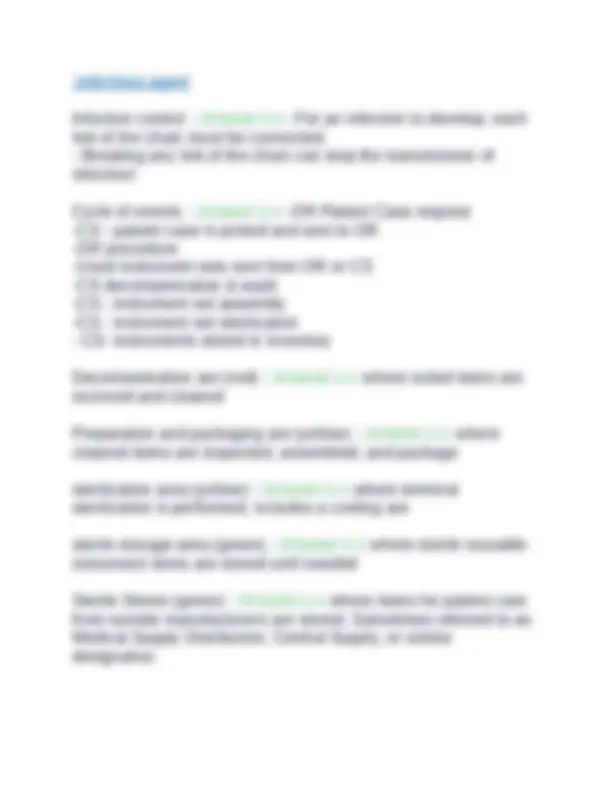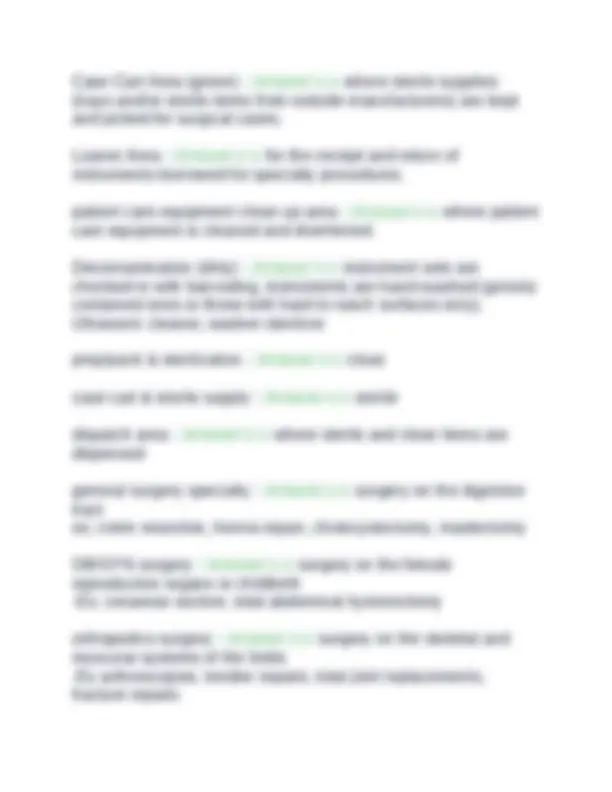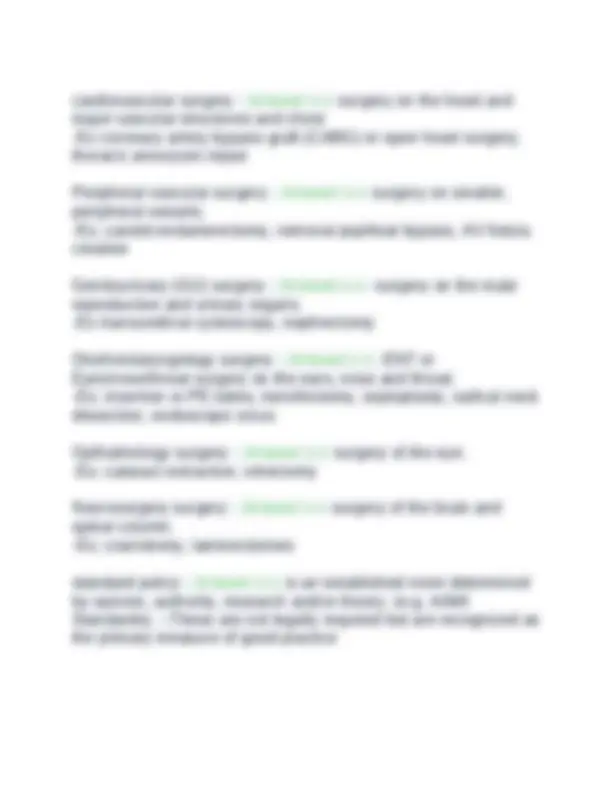





Study with the several resources on Docsity

Earn points by helping other students or get them with a premium plan


Prepare for your exams
Study with the several resources on Docsity

Earn points to download
Earn points by helping other students or get them with a premium plan
Community
Ask the community for help and clear up your study doubts
Discover the best universities in your country according to Docsity users
Free resources
Download our free guides on studying techniques, anxiety management strategies, and thesis advice from Docsity tutors
A comprehensive review of key topics in sterile processing, including decontamination, re-assembly, sterilization, and distribution. It explores the critical role of the central sterile/sterile processing department in healthcare, covering processes like information management, supply chain, and technology. The document also addresses essential knowledge, infection control, surgical specialties, and relevant standards and regulations.
Typology: Exams
1 / 7

This page cannot be seen from the preview
Don't miss anything!




David Mungai [Date] [Course title]
sterile processing - Answer>> -decontamination -re-assembly -sterilization -distribution CS/SPD - Answer>> is a vital department that processes many medical devices that are used directly on patients. -considered the "Heart of the Hospital" Sterling processing involves - Answer>> -information management, and distribution of surgical and medical supplies. -also supply chain management, RFID technology, bar code tracking, and database management Knowledge base - Answer>> -medical terminology -basic anatomy & microbiology -sterile technique -instrument identificaiton -decontamination & reprocessing -packing techniques -informaing technology -supply chain management -materials management knowledge of infection control - Answer>> Infectious agent -reservoirs -portal of exit -means of transmission -portal of entry -susceptible host
Case Cart Area (green) - Answer>> where sterile supplies (trays and/or sterile items from outside manufacturers) are kept and picked for surgical cases. Loaner Area - Answer>> for the receipt and return of instruments borrowed for specialty procedures. patient care equipment clean-up area - Answer>> where patient care equipment is cleaned and disinfected. Decontamination (dirty) - Answer>> instrument sets are checked-in with barcoding, instruments are hand-washed (grossly contained ones or those with hard to reach surfaces only), Ultrasonic cleaner, washer-sterilizer prep/pack & sterilization - Answer>> clean case cart & sterile supply - Answer>> sterile dispatch area - Answer>> where sterile and clean items are dispensed general surgery specialty - Answer>> surgery on the digestive tract ex; colon resection, hernia repair, cholecystectomy, mastectomy OB/GYN surgery - Answer>> surgery on the female reproductive organs or childbirth -Ex; cesarean section, total abdominal hysterectomy orthopedics surgery - Answer>> surgery on the skeletal and muscular systems of the limbs -Ex arthroscopies, tendon repairs, total joint replacements, fracture repairs
cardiovascular surgery - Answer>> surgery on the heart and major vascular structures and chest -Ex coronary artery bypass graft (CABG) or open heart surgery, thoracic aneurysm repair Peripheral vascular surgery - Answer>> surgery on smaller, peripheral vessels. -Ex; carotid endarterectomy, removal popliteal bypass, AV fistula creation Genitourinary (GU) surgery - Answer>> -surgery on the male reproductive and urinary organs. -Ex transurethral cystoscopy, nephrectomy Otorhinolaryngology surgery - Answer>> -ENT or Ears/nose/throat surgery on the ears, nose and throat. -Ex; insertion or PE tubes, tonsillectomy, septoplasty, radical neck dissection, endoscopic sinus Opthalmology surgery - Answer>> surgery of the eye. -Ex; cataract extraction, vitrectomy Neurosurgery surgery - Answer>> surgery of the brain and spinal column. -Ex; craniotomy, laminectomies standard policy - Answer>> is an established norm determined by opinion, authority, research and/or theory. (e.g. AAMI Standards). --These are not legally required but are recognized as the primary measure of good practice
experience, knowledge and skills necessary to provide competent services as a central service technician Certified registered central service technician - Answer>> CRCST certification is accredited by both the American national standards institute (ANSI) and the national commission for certifying agencies (NCCA)